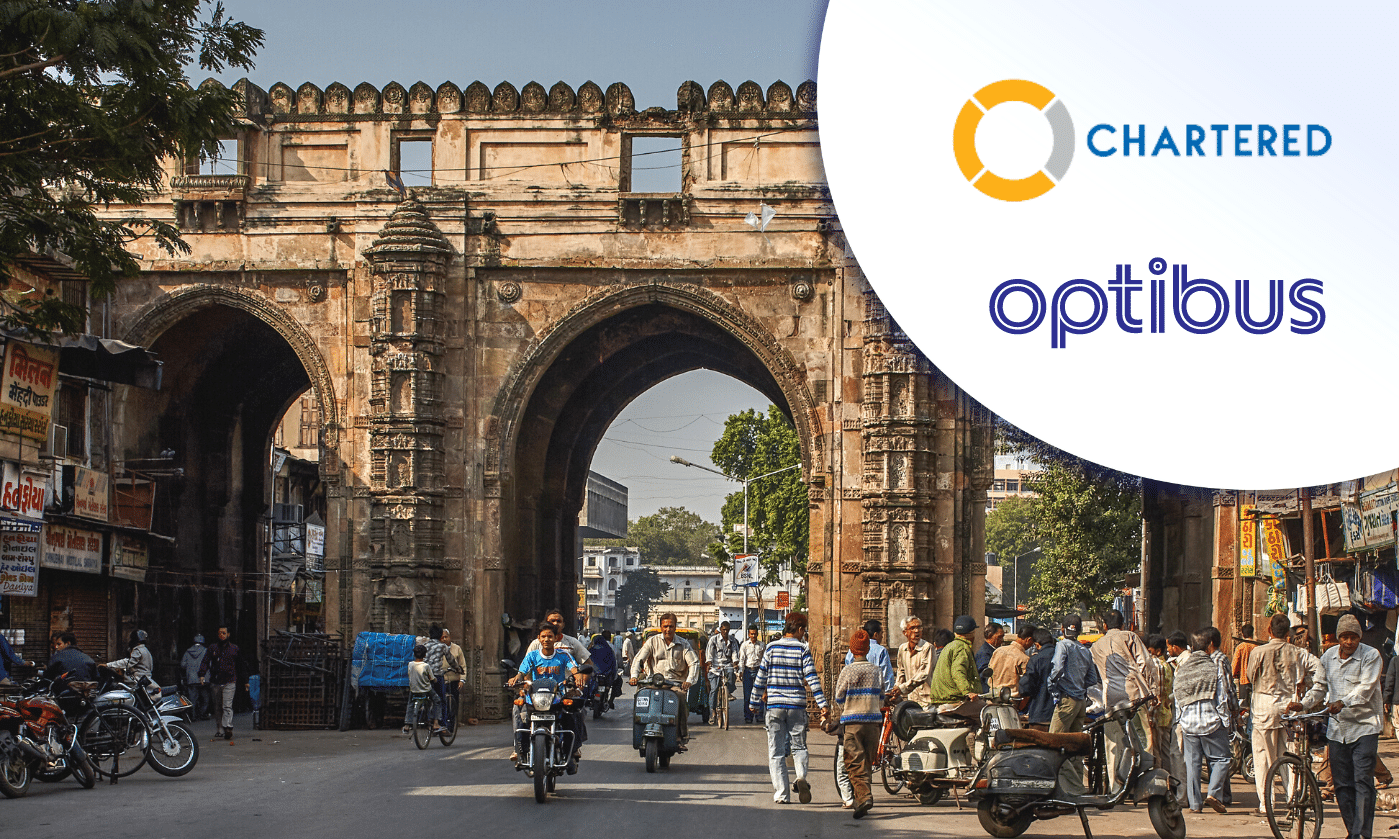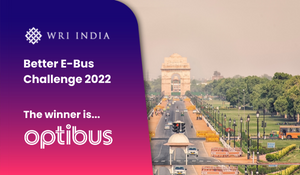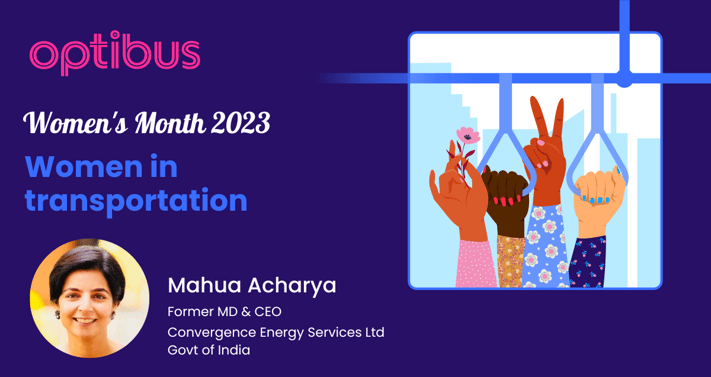
In celebration of International Women’s Month, we spotlight some of the most remarkable women who have left an indelible mark on the public transportation industry worldwide.
We had the honor of speaking with Mahua Acharya from India, who has been transforming the sustainable development and clean energy sector for the last two decades, having served in various roles, including her latest one as MD and CEO of Government-owned Convergence Energy Services Limited in India.
In a heavily male-dominated Indian transportation sector, there has been a notable absence of women in leadership roles. However, Mahua has made a remarkable impact in just two years by establishing her presence at a leadership level. Her achievements speak for themselves, having successfully carried out the largest EV procurement in India worth $1.3B. Not only does she have a strong presence in the industry, but her voice is also heard and valued by the government.
Join us in this interview as we get to know one of the most influential women leaders in India and learn more about her journey and vision for the future of public transportation.
Background
Mahua has pursued an international career in green finance, and renewable energy and has lived and worked in various countries. Furthermore, Mahua has served on the boards of multiple international entities and has appeared on international and Indian listings of women in leadership.
Tell us a bit about yourself. Is there any fact about your career that has been less known?
There are no backstories to my career or even my life! I take great joy in watching young people grow in their careers, I push hard, I admire people who don’t give up, and I have a lot of respect for leaders who are empathetic and take risks.
I love sports, I love the outdoors, I enjoy music, and I want to read and write more than I currently do – but all of this is fairly prosaic. I grew up in a small Indian boarding school built on a philosophy and shared time between that and a remote village in Tanzania for years. I have fond memories of both, was once fluent in Kiswahili, and wish I could go back to speaking it.
Have you seen any shift in the focus on public transportation over the years in your organization?
I was with a Government entity until a few weeks ago. We worked hard to make the company the go-to place for electric mobility in the country. Your colleague Polash Das, Regional Director in N. India, was a pioneer in this regard – he played an instrumental role in building the electric bus program in India.
Is there any theme of public transportation that you advocate the most?
Clean transport is a new area. We have the space now to design it well, make it inclusive and actually think about how to do it right – technologically speaking, and also other facets such as the design of business models, integration of women, building the right frameworks, and so on. I would therefore advocate for the following things: the use of technology, integrating employment considerations, and integrating externalities such as air pollution and climate change, making our cities pedestrian-friendly, and basically making transportation "cool" so it attracts innovation and new bright minds.
Can you share some main challenges (if any) you encountered throughout your career as a woman leader?
In a conversation about equality and harassment in the workplace, I was once told with great pride by its leader that the organization was sensitive in this regard – that a senior lady staff member said at a town hall that she felt like “a daughter”. I had no words at this point but thought to myself how far the equality discussion was in some quarters: women shouldn’t be someone’s daughters or wives or mothers to feel safe at work. And men shouldn’t feel comments such as these are progressive.
People presume a lot. This comes from stereotypes I guess and others’ comfort levels with women in decision-making positions. I try not to think about such stereotyping because it can trigger very negative thoughts. There have certainly been challenges – some over, others more nuanced. I would just say that many countries and industries have a long way to go before we see and feel true gender equality – in the minds of women and men alike.
What advice would you give to young women who would like to have a career in the industry?
To please stay the course, don’t give up, know your subject extremely well, do your homework, follow up, and earn your stripes!
Summary
Mahua’s impact and influence are undeniable, as she has broken down barriers and paved the way for more women to enter leadership roles in a heavily male-dominated field. We are grateful for the opportunity to hear her experience, insights, and vision for the future of sustainable transportation.
Stay tuned for more upcoming interviews with women who make public transportation better - globally.

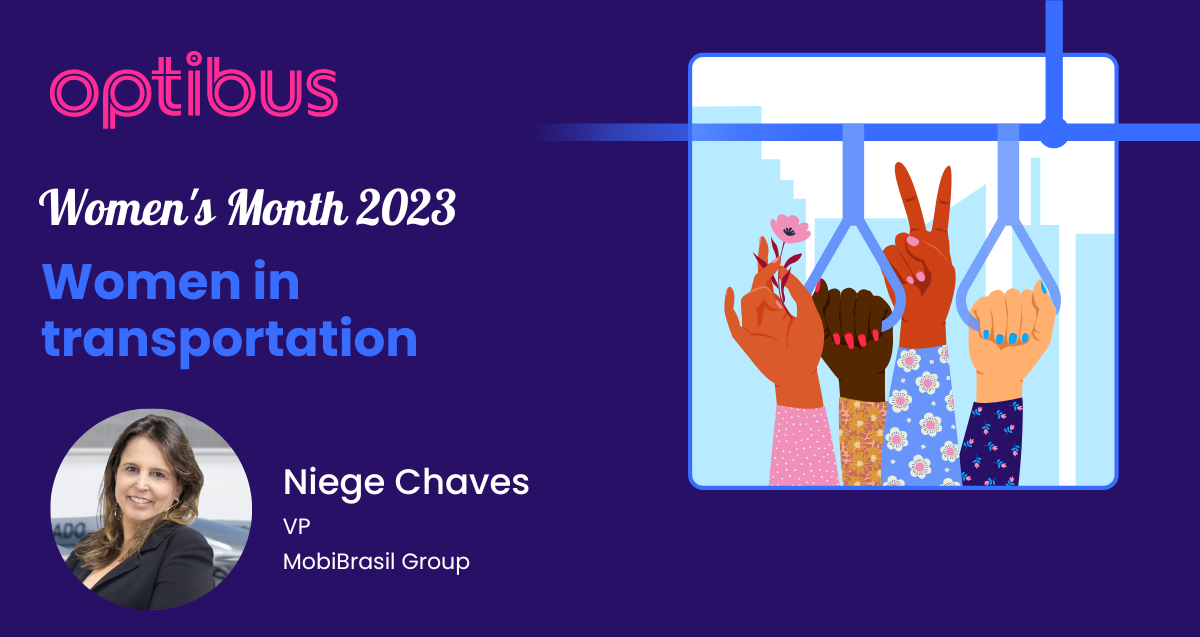
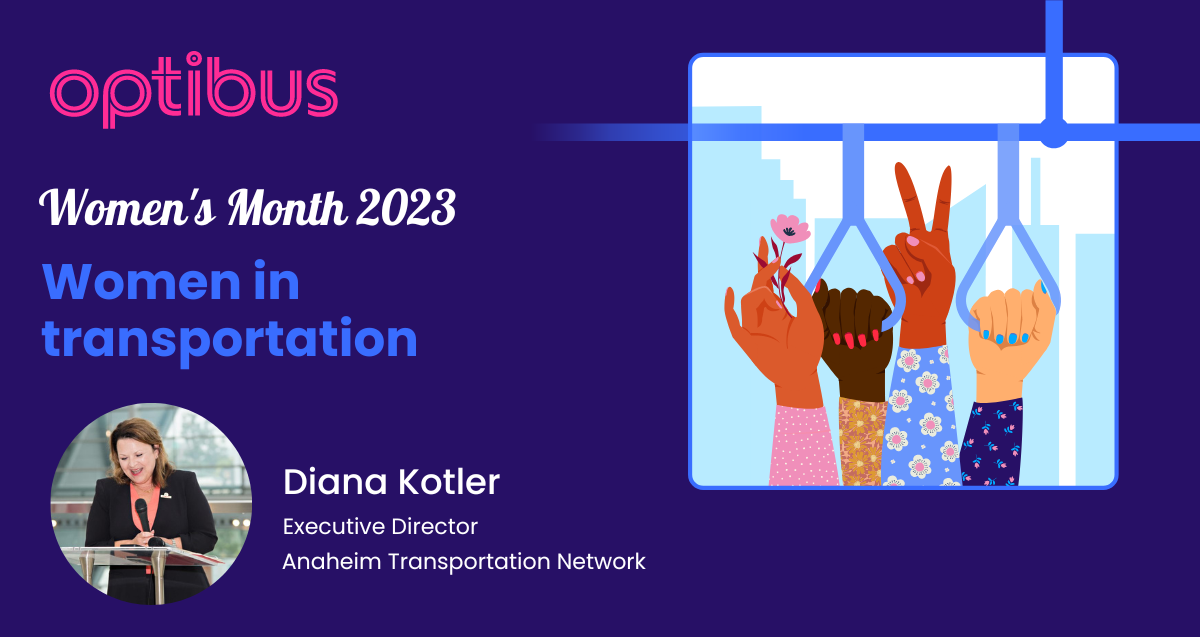
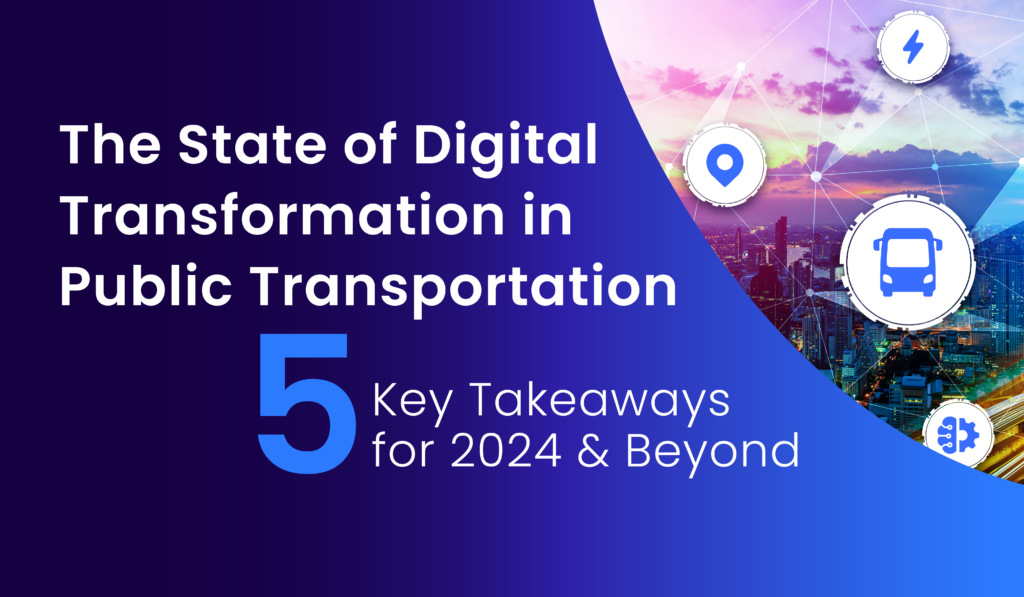
.png)
